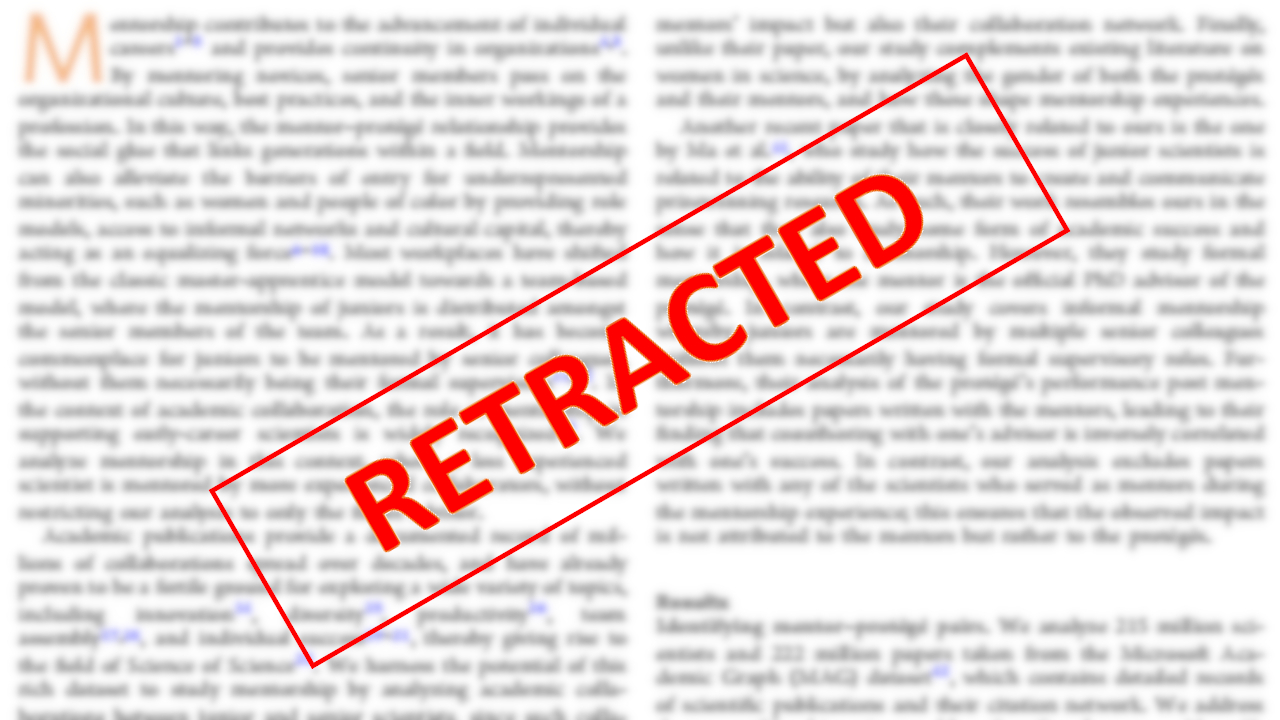
Changing demographics of scientific careers: The rise of the temporary workforce [Top 100 journal articles of 2019]
This article is part 8 of a series reviewing selected papers from Altmetric’s list of the top 100 most-discussed scholarly works of 2019.
A need for reform in university research systems
The #85 most discussed article1 in Altmetric’s top 100 list for 2019 has studied workforce trends in three scientific disciplines – astronomy, ecology, and robotics – covering a period of over half a century.
The big data approach of the study was facilitated by the Clarivate Analytics Web of Science database, which houses an extensive longitudinal dataset containing millions of bibliographic items covering the entire period of contemporary science. For astronomy and ecology, study authors Milojević and colleagues looked at research that had been conducted from 1961 onwards, and for robotics, from 1985 onwards because none of the core robotics journals were published before 1983.
As summarised in the abstract below, Milojević and colleagues found that there has been a dramatic shortening of the careers of scientists across all three disciplines, with the time after which half of the researchers have left the field falling from 35 years in the 1960s to only 5 years in the 2010s. Further, they found that there has been a rapid rise of a group of scientists who spend their entire career only as supporting authors, without ever having been the lead author of a published paper.
Milojević and colleagues contend that a primary driver for this trend has been the increasing shift to team science, but without the structural changes needed to make this shift sustainable from an academic career point of view. The rise in team science has seen an increased division of labour and the standardisation of tasks, with a growing number of scientists now specialising in supporting roles. However, Milojević and colleagues alert that these supporting scientist positions do not fit well with the current employment systems in most universities, which are structured around the model of a graduate apprenticeship, a short period of postdoctoral training, and then movement into a tenure track professor position.
In response, Milojević and colleagues argue that “there is a need to reform career structures in universities to account for the changing nature of the population composition and reproduction cycles in team science, with social insect colonies rather than parent-child reproduction as a more appropriate model.”
What does this mean for knowledge management?
A 2015 knowledge management (KM) study2 by Serenko and Dumay has found that the KM discipline is actually at a pre-science stage, with an emphasis on normative studies. They state that3 “In a well-established, advanced scholarly field, critical and performative works, which are based on solid empirical evidence, should attract more attention than normative studies,which are based on literature reviews or speculations.”
Serenko and Dumay identify that there is progress towards this academic maturity in KM, so now is the ideal time for the KM community to consider Milojević and colleagues’ findings, and this could be the focus of future research. In doing so, the KM discipline has the opportunity to develop university research systems that are both academically mature and facilitate sustainable career paths. This is especially the case as Serenko and Dumay also find that there is a need for KM scholars to be more engaged in international collaboration, which could see a rise in the team science that Milojević and colleagues have found is a primary driver in the shortening of scientific careers.
Author abstract
Contemporary science has been characterized by an exponential growth in publications and a rise of team science. At the same time,there has been an increase in the number of awarded PhD degrees,which has not been accompanied by a similar expansion in the number of academic positions. In such a competitive environment,an important measure of academic success is the ability to maintain a long active career in science.In this paper, we study work force trends in three scientific disciplines over half a century. We find dramatic shortening of careers of scientists across all three disciplines. The time over which half of the cohort has left the field has shortened from 35 y in the 1960s to only 5 y in the 2010s. In addition, we find a rapid rise (from 25 to 60% since the 1960s) of a group of scientists who spend their entire career only as supporting authors without having led a publication. Altogether, the fraction of entering researchers who achieve full careers has diminished, while the class of temporary scientists has escalated. We provide an interpretation of our empirical results in terms of a survival model from which we infer potential factors of success in scientific career survivability. Cohort attrition can be successfully modeled by a relatively simple hazard probability function. Although we find statistically significant trends between survivability and an author’s early productivity, neither productivity nor the citation impact of early work or the level of initial collaboration can serve as a reliable predictor of ultimate survivability
References:
- Milojević, S., Radicchi, F., & Walsh, J. P. (2018). Changing demographics of scientific careers: The rise of the temporary workforce. Proceedings of the National Academy of Sciences, 115(50), 12616-12623. ↩
- Serenko, A., & Dumay, J. (2015). Citation classics published in knowledge management journals. Part I: articles and their characteristics. Journal of Knowledge Management, 19(2), 401-431. ↩
- Serenko, A., & Dumay, J. (2015). Citation classics published in Knowledge Management journals. Part II: studying research trends and discovering the Google Scholar Effect. Journal of Knowledge Management, 19(6), 1335-1355. ↩
Also published on Medium.






